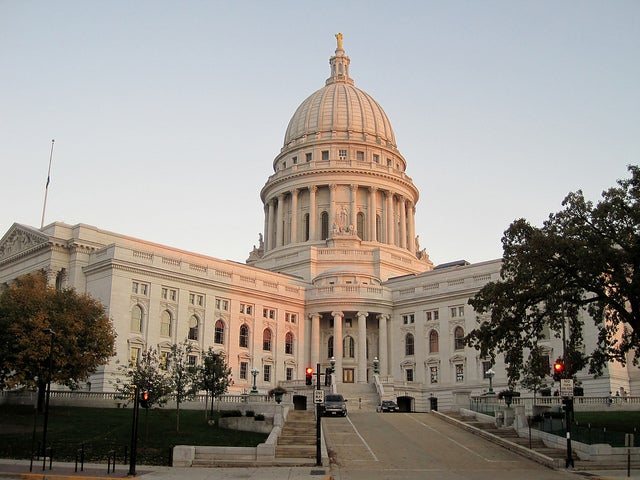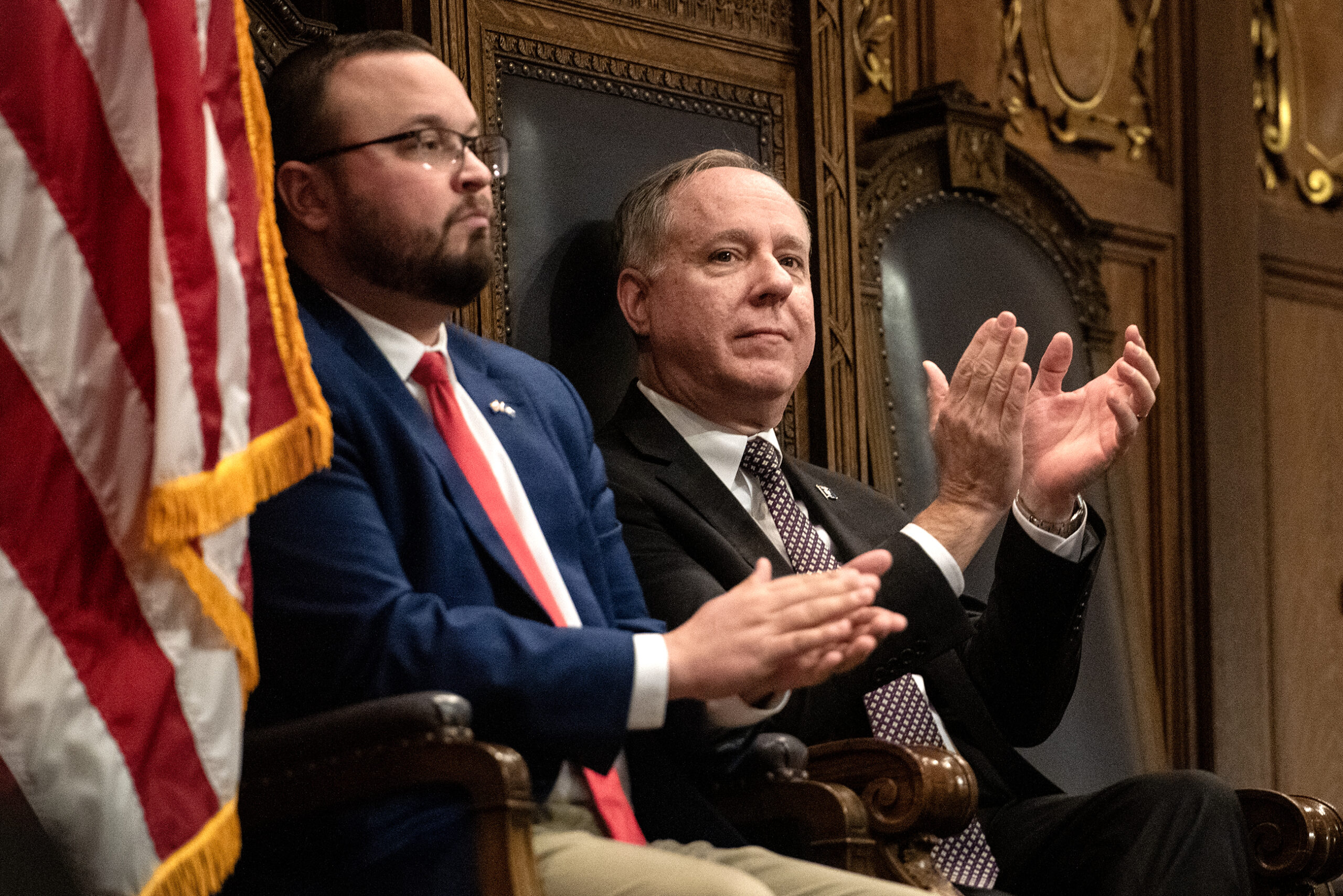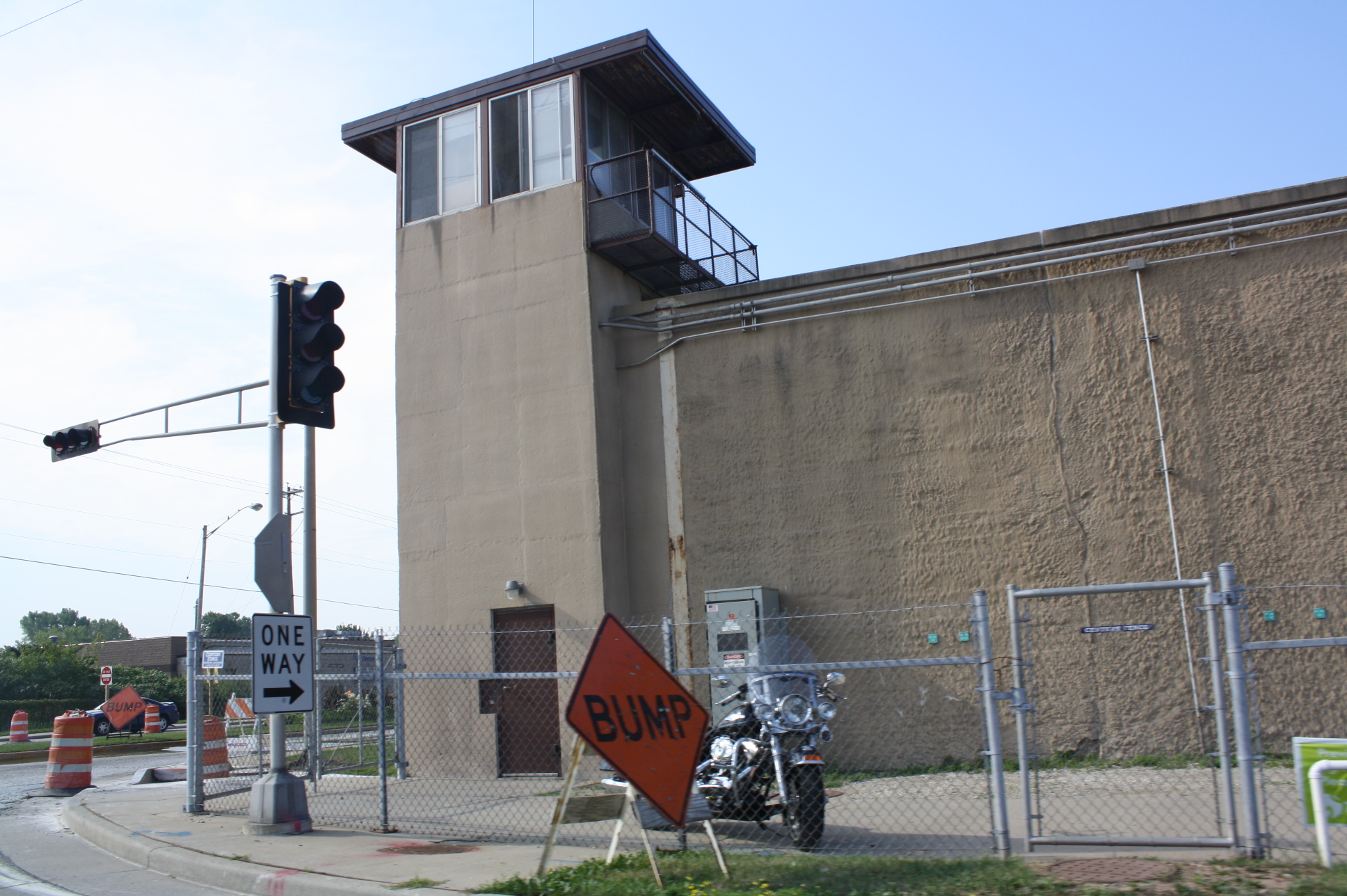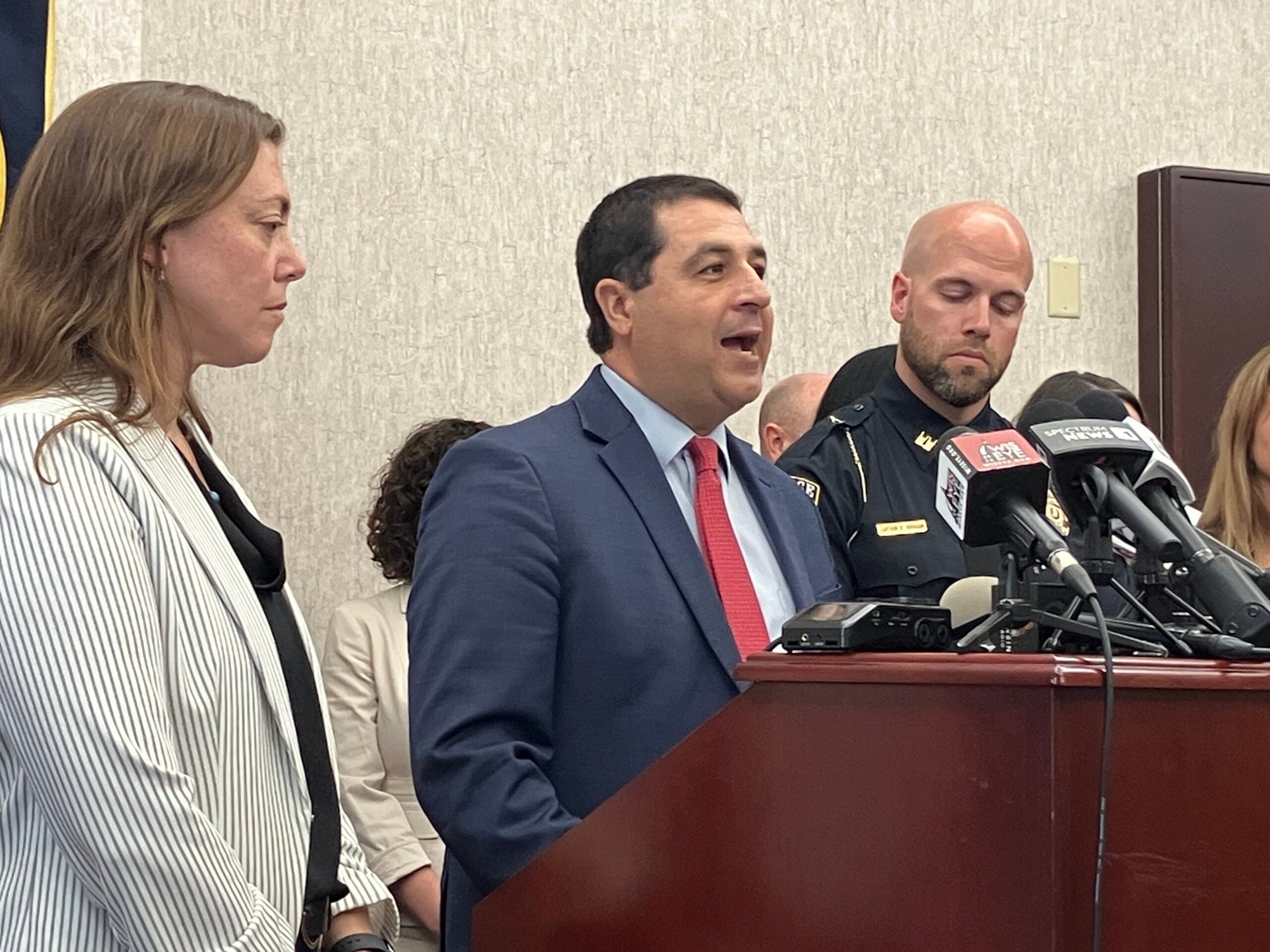Republican legislators on Tuesday rejected Gov. Tony Evers’ proposed $130 million state funding increase for the University of Wisconsin System, a move that system leadership likened to a kick in the shins.
The Legislature’s budget committee voted 12-4 to approve a smaller state funding increase of about $58 million for the UW System. Of that, $45 million would be subject to later committee approval after the system provides a report on how it would spend the money. Republicans voted in favor of the proposal and Democrats against.
State Rep. John Nygren, R-Marinette, argued the plan will provide flexibility to the system, as well as necessary accountability to taxpayers.
News with a little more humanity
WPR’s “Wisconsin Today” newsletter keeps you connected to the state you love without feeling overwhelmed. No paywall. No agenda. No corporate filter.
“There will always be a desire from some to spend more,” Nygren said.
After the vote, UW System President Ray Cross decried the decision.
“The Legislature missed an opportunity to meet the future needs of this state,” Cross said. “I feel like I’ve been kicked in the shins.”
Cross said the approved amount of funding will prevent the UW System from realizing many of its plans for the next two years, including expansions of high-demand nursing and engineering programs at campuses across the state. The system had requested a $107.5 million increase.
Lawmakers did agree with the governor on a proposal to continue a tuition freeze for the system that has been in place since 2013.
However, GOP lawmakers didn’t approve Evers’ plan to do what he and Democratic legislators have called “funding the freeze.” That accounts for about $50 million in the roughly $68 million gap between the governor’s and GOP plans.
During debate, Democratic lawmakers continued to push for that funding.
“You cannot continue to freeze tuition without putting resources behind the freeze,” said state Rep. Evan Goyke, D-Milwaukee.
Rep. Chris Taylor, D-Madison, argued “funding the freeze” is critical to the system attracting and retaining faculty, among other things.
“The money from tuition goes into salary and goes into other important expenditures that we need to make,” she said.
Republican lawmakers argued the state has provided the UW System sufficient funding in recent years, including an increase in the last budget.
Pay Increase Approved For Public Defenders
The committee also voted to approve a pay increase for private lawyers that take public defender cases in Wisconsin.
Under the plan, their pay would increase from $40 per hour, which is the lowest pay rate in the nation for public defenders, to $70 per hour.
The low pay rate prompted a federal lawsuit earlier this year, with plaintiffs arguing it deprived them of constitutional rights to legal representation and a speedy trial. Last year, lawyers and judges unsuccessfully petitioned the Wisconsin Supreme Court for the pay bump.
Goyke called the current pay rate “a crisis.”
“This is something we really desperately need to solve,” he said.
“We’re trying to make up for some things that we haven’t been able to do for a long, long time,” said Rep. Amy Loudenbeck, R-Clinton, noting the rate hasn’t been increased since 1995.
Lawmakers also approved a pay raise for district attorneys and assistant attorneys general.
The budget committee has been meeting for the past several weeks to work on the state budget. Last week, they approved a $500 million increase in K-12 education funding. That amount falls far short of the $1.4 billion increase proposed by the governor.
Plan For Additional DNR Scientists Limited
GOP lawmakers also rejected the governor’s plans to increase the number of scientists at the state Department of Natural Resources by five, instead approving only two new positions.
The committee voted 12-4 to reject the governor’s proposal. It was a party-line vote, with Republicans in favor and Democrats against.
Nygren said the department is strong now.
“We make it sound like the scientists went away — there’s still a lot of science going on at the Department of Natural Resources,” Nygren said. “The rhetoric gets pretty heavy.”
Republican lawmakers also scaled back a number of the governor’s other proposals for the department.
Evers called for a large number of initiatives aimed at improving water quality in the state and included plans to borrow up to $70 million to fund those initiatives in his spending plan. He has proclaimed 2019 the “Year of Clean Drinking Water.”
In his spending plan, Evers allocated $2 million for a grant program that would help homeowners replace contaminated wells. The plan approved by Republican lawmakers would only provide $400,000.
Democrats argued against Republicans’ edits during debate, saying they don’t provide adequate response to things like manure spills from large-scale agricultural operations.
“This is ignoring manure coming out of people’s taps,” said Taylor. “How can you turn your back on this?”
Republican Sen. Tom Tiffany, R-Minocqua, said the amount approved by Republicans is adequate and accountable to taxpayers.
“This is a good proposal we have before us — it is responsible to the subject area we’re dealing with and to the taxpayers here in Wisconsin,” he said.
Wisconsin Public Radio, © Copyright 2026, Board of Regents of the University of Wisconsin System and Wisconsin Educational Communications Board.







